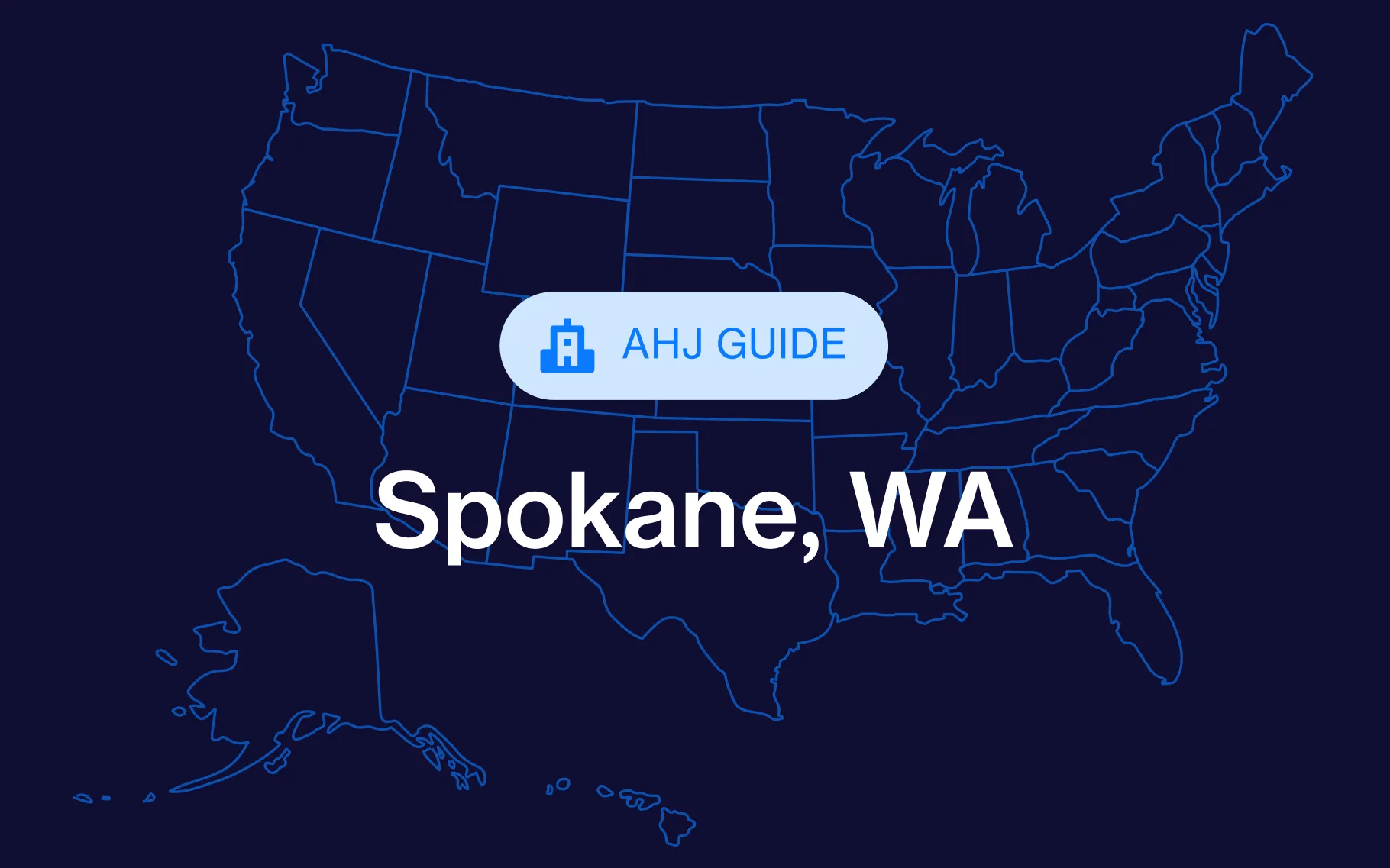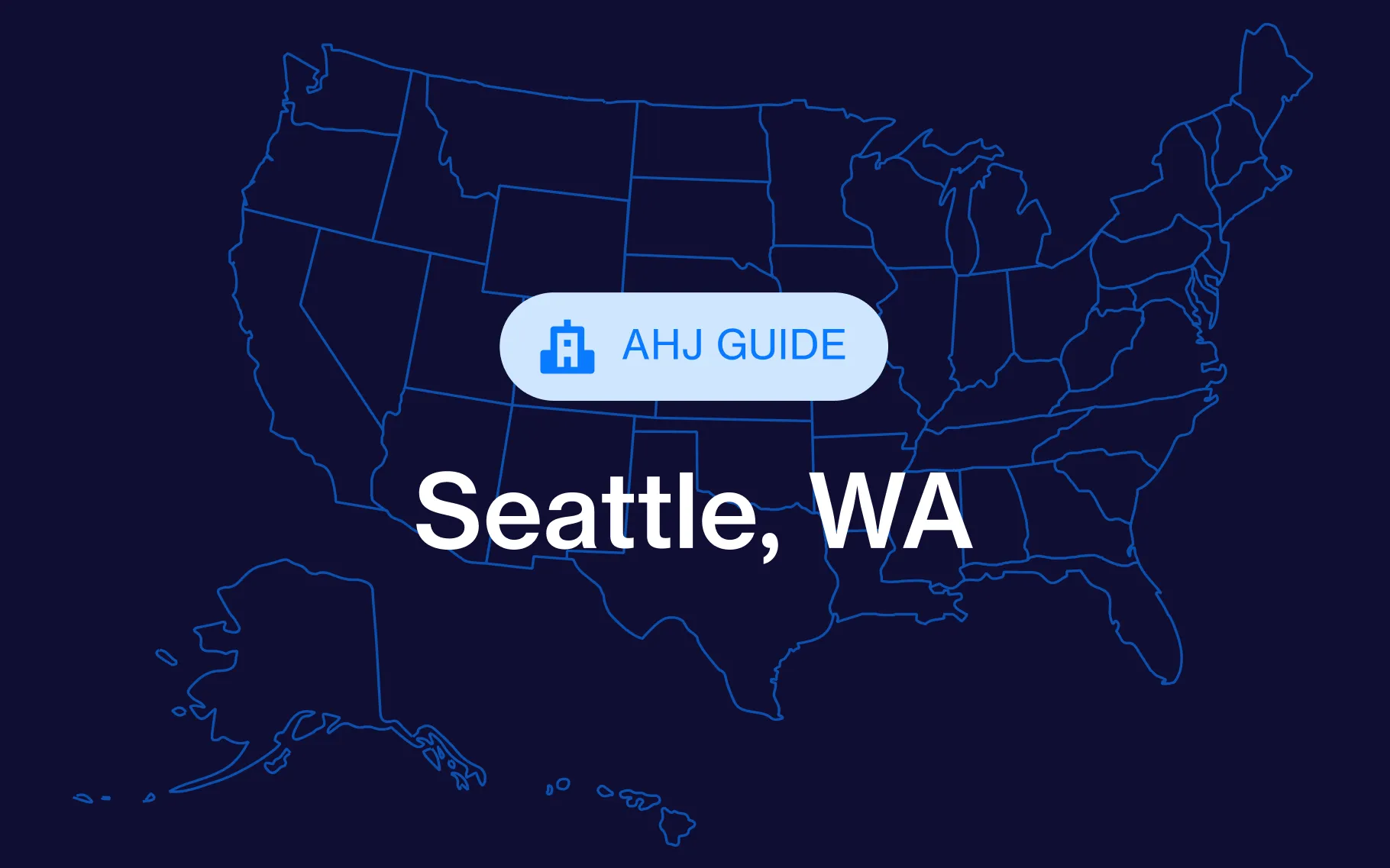Pulling permits in Washington isn’t always straightforward. While the state sets the building code through the Washington State Building Code Council (SBCC), each city and county has its own permitting rules, forms, and review timelines. For builders, developers, and contractors, that means the process can feel fragmented and unpredictable.
Let’s break down the essentials so you know when you need a permit, who to work with, and how to keep projects moving without unnecessary delays.
Who issues building permits in Washington?
Building permits are issued at the local city or county level, not by the state.
For example:
- In Seattle, permits are issued by the Seattle Department of Construction & Inspections (SDCI).
- In Spokane, permits are handled by the Spokane Development Services Center.
- In Pierce County, the Planning & Public Works Department is responsible.
The SBCC adopts statewide building codes, but each jurisdiction enforces and administers them locally. This means permit application procedures, timelines, and fees can differ significantly between municipalities.
When do you need a building permit in Washington State?
In Washington, most construction, alteration, or repair work requires a building permit.
Common projects that typically need a permit include:
- New residential and commercial structures
- Additions, remodels, or major renovations
- Structural changes such as removing or adding load-bearing walls
- Electrical, plumbing, and mechanical installations or upgrades
- Roof replacements, window and door replacements, and siding
- Decks, porches, and accessory structures (such as garages or sheds)
Some minor cosmetic updates, like painting, flooring replacement, or small non-structural repairs, may not require a permit. Because thresholds vary by jurisdiction, always confirm with the local building department before starting work (see SBCC guidance).
Washington building permit requirements
Most jurisdictions in Washington require permit applicants to provide:
- Completed permit application forms (usually available online via the local building department)
- Construction documents such as site plans, floor plans, elevations, and structural details
- Engineering calculations where applicable
- Energy code compliance forms (Washington follows the Washington State Energy Code, part of the statewide building code)
- Supporting documents like contractor licenses and environmental review forms if required
Jurisdictions may also require multiple plan sets for review by different departments, including zoning, fire, and public works.
Washington building permit costs
Permit fees in Washington vary by jurisdiction and project size.
Common fee structures include:
- Valuation-based fees: Calculated as a percentage of total construction value (materials + labor)
- Flat fees: For smaller projects like mechanical or plumbing permits
- Additional fees: Plan review fees, technology surcharges, and inspection fees
For example, Seattle bases building permit fees on the project’s valuation, with additional plan review fees applied (SDCI fee schedule). Spokane also uses a valuation-based system, while many counties charge flat fees for trade permits like electrical or mechanical.
Unique considerations when permitting in Washington
Energy code compliance
Washington has one of the more stringent state energy codes in the U.S., particularly for insulation, windows, and HVAC systems.
Environmental regulations
Many projects must comply with the State Environmental Policy Act (SEPA), particularly when there are potential impacts on wetlands, stormwater, or other sensitive areas.
Seismic requirements
Washington lies in a seismically active region, meaning structural designs typically need to meet earthquake-resistance standards (USGS Earthquake Hazards Program).
How to get a building permit in Washington
While the exact steps vary by jurisdiction, the typical process looks like this:
- Determine project scope
Identify whether your project requires a permit (check local building department guidelines). - Prepare plans and documents
Work with architects or engineers to ensure construction documents meet state and local code requirements. - Submit the application
Apply online or in person with the local building department, including all required forms and plans. - Plan review
Departments such as zoning, structural, fire, and environmental will review your submission. - Respond to comments
If reviewers provide comments or request revisions, update your documents and resubmit. - Permit issuance
Once approved, pay applicable fees and receive the permit. - Inspections
Schedule required inspections throughout construction to maintain compliance.








